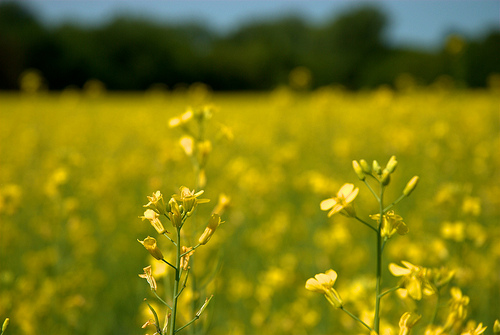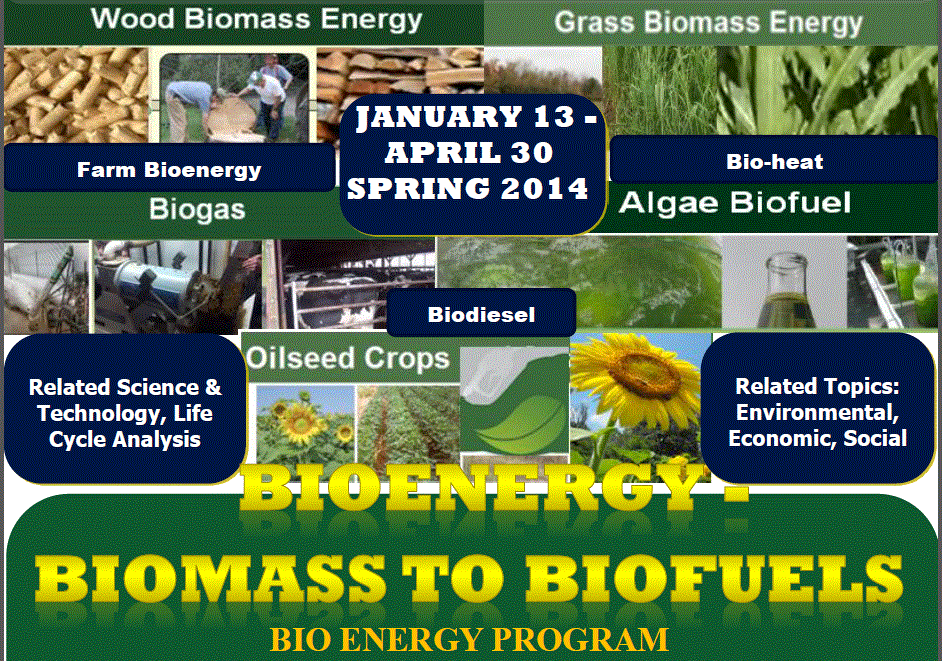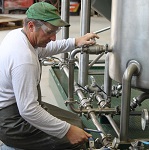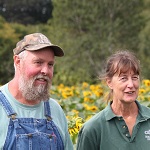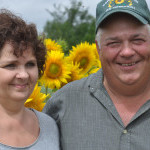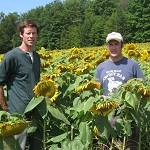11 Mar 2014
Waterbury LEAP Energy Fair
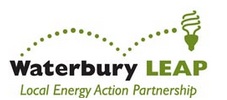 Saturday, April 5, 2014 | From 9am to 3pm | Free Admission
Saturday, April 5, 2014 | From 9am to 3pm | Free Admission
Crossett Brook Middle School Gym, Duxbury
Including the Waterbury Farmers’ Market
Learn how to reduce fuel bills, save energy, and reduce emissions by visiting over 70 exhibitors, participating in break-out discussions, and taking part in walk-through weatherization and energy demonstration projects. Go here for an overview of the event and list of exhibitors.
10 Mar 2014
Montpelier Announces a Renewable Energy Future

A new initiative is focused on making Montpelier, Vermont the first net-zero capital city in the country.
City officials today joined with energy leaders to launch a major initiative focused on making Montpelier the first net zero capital city in the country. Achieving net zero means that Montpelier would meet all its power needs through renewable energy sources and efficiency by 2030. The City of Montpelier was joined by a coalition of organizations that are committed to making this goal a reality.
“This ambitious goal, endorsed by the city council, sets a new direction for Montpelier’s energy future that will provide the opportunity for every citizen to engage,” said Montpelier Mayor John Hollar.
Montpelier is uniquely positioned to move forward on the net zero by 2030 goal. More than 15% of Montpelier housing units have already completed comprehensive energy efficiency projects with Efficiency Vermont; in 2013, the city upgraded all streetlights to high efficiency LEDs; and the downtown biomass district heating project is currently nearing completion.
The Energy Action Network and Montpelier Energy Advisory Committee have worked closely with the city to set the net zero goal and bring together the group of stakeholders to map out a plan of action. “Montpelier’s commitment to creating a secure and affordable energy future is tremendously exciting,” said Andrea Colnes, executive director of the Energy Action Network. “Through this project Montpelier and Vermont will again lead by example and inspire other cities across the US to reach for a bright future and shift to clean, renewable energy.”
Dan Jones, Chair of the Montpelier Energy Advisory Committee, describes this project as “a unique approach for a city as a whole. By engaging the city government, businesses, and citizens around a common vision, we hope to change the conversation from piecemeal small reforms to a system-wide reimagining of our energy priorities. This project will require the collaboration of all Montpelier’s sectors to make it a reality.”
As part of today’s launch, Green Mountain Power and Efficiency Vermont announced a suite of initiatives designed to support the effort by driving down energy consumption and increasing the use of renewable energy in Montpelier. These include:
Green Mountain Power will work with the city to locate multiple electric vehicle charging stations in the City;
- Efficiency Vermont will convene a “Net Zero Montpelier” community conversation in September to help residents, businesses, and local partners set goals and take action on energy efficiency. Reducing energy consumption is a key first step towards net zero, since it enables a larger portion of energy needs to be met through renewable sources;
- Efficiency Vermont experts will offer guidance, incentives, and support to help homeowners reduce their energy usage and make their homes “net zero ready;”
- Green Mountain Power will extend to Montpelier its pilot heat pump program that saves customers money while reducing fossil fuel use for heating;
- Efficiency Vermont and the City of Montpelier will develop an energy road map for all municipal facilities, including exploring the opportunity to design the new downtown transit center to net zero standards, and kicking off a large scale energy saving project at the wastewater treatment facility;
- The Vermont Department of Buildings and General Services will collaborate with Efficiency Vermont on a large scale effort to reduce energy usage in Montpelier’s state buildings;
- GMP will work with AllEarth Renewables to install solar trackers in a group net metering project involving the Vermont Natural Resources Council and Vermont Land Trust, who have expressed interest in taking the power. The trackers will be on GMP property near the entrance of the city and will be a visual statement of Montpelier’s commitment to becoming net zero.
“This initiative signals a transformation in how Vermont’s cities and towns will use energy,” said Mary Powell, president and chief executive officer of Green Mountain Power. “Deploying new technologies in our cities and towns, as we are also doing in Rutland, will have economic and environmental benefits for all Vermonters. It makes perfect sense that Vermont would be the state where we can successfully make our capital net zero.”
“We are looking forward to helping turn the vision of Net Zero Montpelier into a reality,” said Jim Merriam, Director of Efficiency Vermont. “In driving progress toward the net zero goal, Efficiency Vermont experts will engage with partners and community members at every level to help them get the most value for their energy dollars, and set the stage for a clean energy future.”
Other partners in Net Zero Montpelier have so far included: Vermont State Employees Credit Union, National Life, Vermont Energy Investment Corporation, SunCommon, IBM and the general membership of the Energy Action Network. As Net Zero Montpelier continues to engage the community, there will be numerous opportunities for additional organizations and stakeholders become actively involved in the effort.
For more information on Net Zero Montpelier, or to get involved, please visit www.eanvt.org/net-zero-montpelier. To learn more about GMP’s heat pump pilot project, email heatpump@greenmountainpower.com.
Press Contact:
Jessie Baker
Assistant City Manager
City of Montpelier
39 Main Street
Montpelier, VT 05602
(802) 262-6250
Monday, March 3, 2014 at the Sheraton Hotel and Conference Center in Burlington, VT. Join us to learn from growers, processors and researchers about their experience with oilseed crops like sunflower, canola, soybeans and flax. Discuss how these oilseeds can add value to farms in the form of feed, fuel, soil amendments and culinary oil. View the workshop brochure or the detailed agenda for more information. Visit www.uvm.edu/extension/oilseed meeting to register.
January 13, 2014 to April 30, 2014
Thursday & Fridays 9:00AM – 12:00PM (no classes during the regular breaks/holidays, plus 2 weeks self-study for the course project; final exam in May)
Location: UVM campus & throughout Vermont for field trips/hands on experience
Details/Course Website: 4 Credit through ENSC, NR & TRC (3 & 2 credits only through ENSC) http://go.uvm.edu/7y1rr
CERTIFICATE OF ACHIEVEMENT: awarded for successfully completing the 4 credits.
DETAILS: Experts in following areas will provide hands-on instruction in a wide range of topics including:
- LIQUID BIOFUELS (seed-based biodiesel; bioethanol; conversion of waste oil to biodiesel; and advanced biofuels including algae-biofuel & microbial biofuel)
- SOLID BIOFUELS (wood & grass energy, pelletization)
- BIOGAS & BIO-ELECTRICITY (the farm-based energy)
- BIOHEAT, BIOMASS CONVERSION TECHNOLOGIES FOR BIOFUEL, BIOFUELS/ENERGY RELATED ENVIRONMENTAL, ECONOMICS, & SOCIAL ISSUES
- OTHER wide-range of Biofuels related science & technology topics, background & literature
Topics & Experts: http://go.uvm.edu/eg1bx.
This course is designed to provide hands-on experience in all possible Bio-Renewable Energy areas to prepare participants from diverse backgrounds for jobs in the BioEnergy / Biofuels industry, or higher education in the field, or related entrepreneurial endeavors in bioenergy / biofuels areas.
CONTACTS: For syllabus related questions contact the Lead Instructor, Anju Dahiya, at adahiya@uvm.edu To register, email http://learn.uvm.edu/contact/ ) or call 800-639-3210. To make a phone or in-person appointment with a Continuing Education Advisor to discuss your options, call 802-656-2085.
INSTRUCTORS: UVM FACULTY MEMBERS and EXPERTS from VT-based Biomass/biofuels businesses (see a list on the course website).
PARTICIPANTS/STUDENTS
All welcome: Degree and non-degree seeking students, budding entrepreneurs, teachers (interested in developing curriculum or projects at school or college levels), farmers, and others.
MEANS OF INSTRUCTION
- ON CAMPUS CLASSES: BY UVM FACULTY MEMBERS and EXPERTS from VT-based biofuels businesses
- HANDS-ON FIELD WORK & SERVICE LEARNING PROJECTS involving tours to Farms/Biofuel facilities & related projects. Check out past SL projects at: http://go.uvm.edu/xa20i
- TALKS by guest-speakers/experts from businesses
- BIOFUELS EQUIPMENT DEMONSTRATIONS by professionals
- ONLINE CLASSES: supplementary classes/information including video clips and discussions
Three course listings to register from:
http://learn.uvm.edu/courselistspring/course.php?term=201401&crn=12170
http://learn.uvm.edu/courselistspring/course.php?term=201401&crn=12075
http://learn.uvm.edu/courselistspring/course.php?term=201401&crn=14731
MEET FORMER STUDENTS: http://go.uvm.edu/2xgs8
11 Nov 2013
Buy Essay Online Australia
Alerts Keep all times are cleaned at by the electrode of the ph meter if you are not utilizing it to ensure its reliability. Can you tell buy essay online australia us about Straightening Hair? Be sloppy touse although a ph test set does not need preservation or calibration, but usually takes moment. Do state: Include fats with some vitamins and minerals towards the ingredients you presently consume. Guidelines Provide Particulars. Tell us all you learn below.
Learn how to overcome your duties of composition writing with one of these recommendations: 1st.
You can find 3 standard solutions: ph 4, ph 7, and pH 10. Select a meter where the electrode is not permanently linked, if you’re going to utilize the ph meter in quite a few places. It’s not reliable if it gives commonly different benefits one minute apart. Yes No Careers inside the Military to join the Armed forces For aiding, cheers! The pH (quick for “strength of hydrogen”) degree is established by multiplying the exponent for that awareness of hydrogen ions in option (0.1 corresponding to 10 towards the energy of -1, 0.01 equal to 10 for the energy of -2) by -1. You may get by with Hydrion paper or possibly litmus for assessment ph in a class science lab or home school location. If you should be ph-screening foods with no oil or little, or foods where oil separated out or can be added later, you will get by with normal glass- tipped electrodes.
While in the part that is next, supply the numeric information on the pay raise.
Read More
19 Sep 2013
State Line Farm
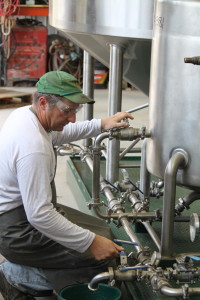 Feedstock: Sunflowers, canola, mustard
Feedstock: Sunflowers, canola, mustard
Fuel: Biodiesel
Energy Output: Power (for farm machinery)
Services: Oilseed and Grain Grower, Oil milling, Fuel Processing, Feed Supply
Owner: John Williamson
Location: Shaftsbury, Vermont; Bennington County
On the forefront of oilseed crop growing in a northeastern climate, State Line Biofuels is Vermont’s first on-farm facility making biodiesel made from oilseed crops grown on-site and from neighboring farms.
The Williamson family has owned State Line Farm in southwest Vermont alongside the border of New York since 1936. For many years, State Line was run as a traditional dairy farm, but falling milk prices caused them to sell the herd and look towards diversifying the farm’s operations.
John and his family currently produce maple syrup, honey, sorghum syrup and hay for sale in local markets. Since 2004, State Line Farm has also experimented with sunflower, canola, mustard, and flax varieties in an effort to fuel their farm with biodiesel.
Read More
19 Sep 2013
Ekolott Farm
 Feedstock: Sunflowers, soybeans and canola
Feedstock: Sunflowers, soybeans and canola
Fuel: Biodiesel
Co-products: High-protein sunflower meal as feed ingredient
Energy Output: Power (for farm machinery) and heat (for farmhouse)
Services: Oilseed Grower, Oil milling, Feed Supply
Owner: Larry Scott and Peggy Hewes
Location: Newbury, Vermont
Larry Scott and Peggy Hewes operate Ekolott Farm—a diversified farm raising emus, Herefords, and hogs, and growing feed and energy crops such as shell corn, sunflowers, and soybeans on 200 acres of Connecticut River valley land. Ekolott produces biodiesel to fuel a portion of their tractor work, all of their own heat and an increasing amount of the feed ingredients for their animals, including grains and sunflower seed meal.
Ekolott is a three-generation dairy farm that moved to Vermont from Massachusetts in 1980. The farm consistently achieved Vermont milk quality awards with their 220 registered Holsteins, until the cows were sold in 2004.
Diversification of the farm had already begun in 1994 when the Scott family began raising emus (they are currently the largest and one of the oldest emu farms in Vermont, under the name Riverside Emus). With barns and pasture freed up after the dairy herd was sold, the Scott-Hewes took on raising Herefords and hogs and have been developing a local customer base for their beef, pork, and emu through on-farm and farmers’ market sales.
Read More
19 Sep 2013
Borderview Research Farm
Feedstock: Sunflowers, canola, switchgrass
Fuel: Biodiesel and grass pellets
Energy Output: Power (for farm machinery) and heat
Services: Oilseed and Grain Grower, Oil milling, Biomass Pelletizing, Fuel Processing, Feed Supply
Owner: Roger and Claire Rainville
Location: Alburgh, Vermont; Grand Isle County
Having sold his dairy herd several years ago and thinking he was heading into semi-retirement, Roger Rainville began experimenting with farm-scale biodiesel production on his family farm in northern Vermont, which literally hugs the Canadian border.
The University of Vermont (UVM) now leases a number of acres from the Rainvilles as Borderview Farm has become one of the best-known applied research facilities in Vermont. Roger, along with Dr. Heather Darby, a UVM Extension agronomist, and her team have helped transform the former dairy farm, conducting leading research in the Northeast on oilseed crops, perennial grasses, hops, small grains and other crops suitable for small-scale and value-added farming.
Read More
17 Sep 2013
North Hardwick Organic Dairy
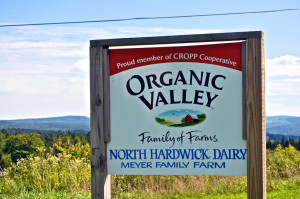 Feedstock: Sunflowers, certified organic
Feedstock: Sunflowers, certified organic
Fuel: Biodiesel
Co-products: High-protein sunflower meal as feed ingredient
Energy Output: Power (for farm machinery)
Services: Oilseed Grower, Oil milling, Fuel Processing, Feed Supply
Owner: Nick and Taylor Meyer
Location: Hardwick, Vermont
The Meyer family has owned and operated their dairy on a 327-acre farm in Hardwick, Vermont since 1978. In 2003, when the younger Meyer boys took over the farm where they grew up, they transitioned to organic production. Today, Nick and Taylor produce some of the highest quality milk in the state of Vermont, winning numerous awards and gaining notoriety for their sustainable and innovative approach.
That approach has included efforts to reduce overhead costs by making the farm as self-sufficient as possible. A Bergy Wind Turbine was erected in 2007 to provide some of the farm’s electricity and Andrew began making biodiesel from waste vegetable oil in 2008. All the tractors on the farm run on B50 (50% biodiesel & 50% petrodiesel) for the summer and the furnace runs on B15 for the winter months.
“I want to produce everything the farm needs, without buying out (off the farm)” Nick Meyer explains. North Hardwick Dairy (NHD) uses 4,000 gallons of diesel each year (2,000 gallons of diesel for off- road equipment and 2,000 gallons in their furnace).
Read More
27 Aug 2013
UVM Crops and Soils 2013 Annual Field Day
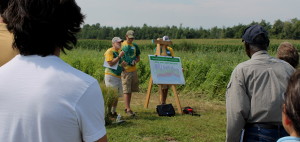 The University of Vermont Extension Northwest Crops and Soils team held their annual Field Day on Thursday, August 1, 2013 from 10:00am to 3:30pm at Borderview Research Farm in Alburgh, Vermont.
The University of Vermont Extension Northwest Crops and Soils team held their annual Field Day on Thursday, August 1, 2013 from 10:00am to 3:30pm at Borderview Research Farm in Alburgh, Vermont.
Dr. Heather Darby led more than 200 attendees on a tour of research stations at the farm. The theme of this year’s field day was “Strategic Farming – Gearing Up for Weather Extremes.” Tour stops included brief overviews fr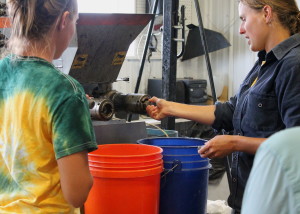 om researchers and technicians focused on cover crops, irrigation systems, sunflowers for cooking oil and biodiesel, wheat varieties, aerial seeding, hops variety trials and demonstration of a mechanized hops harvester, and demonstration of an oilseed press.
om researchers and technicians focused on cover crops, irrigation systems, sunflowers for cooking oil and biodiesel, wheat varieties, aerial seeding, hops variety trials and demonstration of a mechanized hops harvester, and demonstration of an oilseed press.
Vermont Bioenergy Initiative was in attendance with the Bioenergy Now! videos along with copies of the report, Vermont On-Farm Oilseed Enterprises: Production Capacity and Breakeven Economics written by Netaka White, formerly of VSJF and now of Full Sun Company, and Chris Callahan with UVM Extension.
More than 20 attendees, many of them farmers, attended the demonstration of the two oilseed presses at Borderview Farm by Hannah Hardwood of UVM Extension and Roger Rainville, owner along with his wife, Claire, of Borderview Farm.





